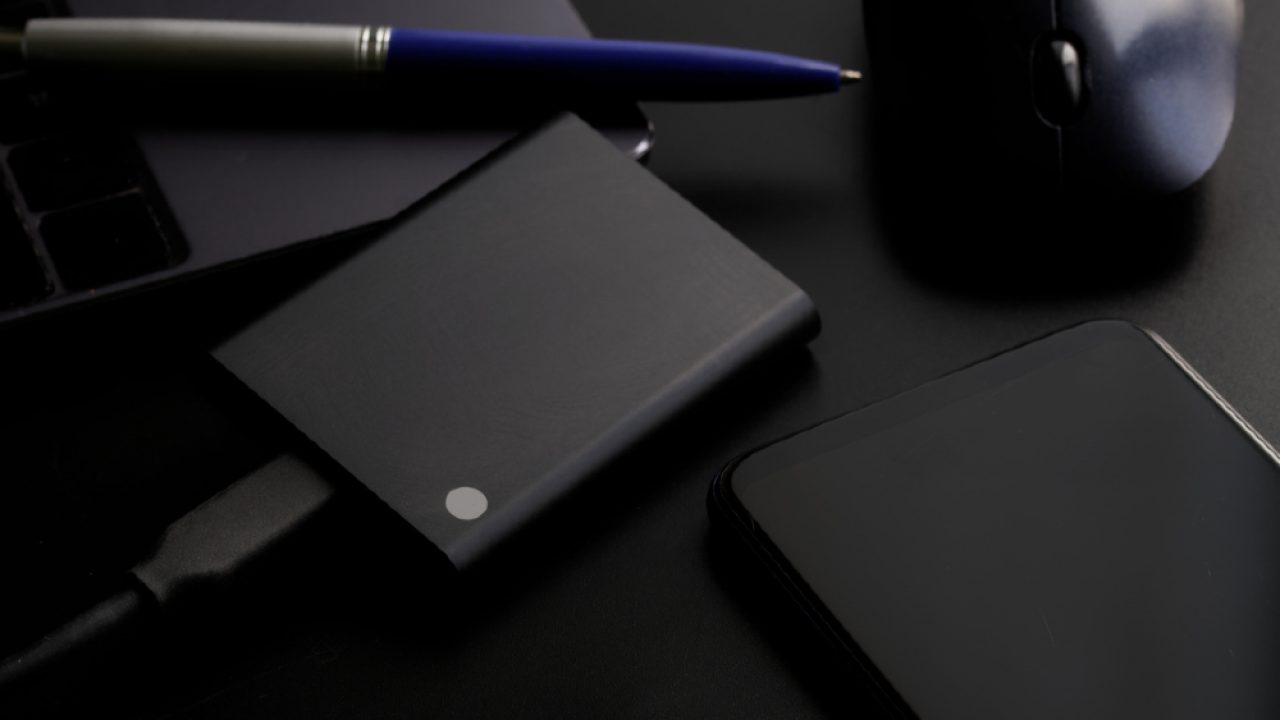
Home Reviews Computers & Accessories Carry Your Data Easily With the Best External SSDs
TechJunkie Expert Recommendations
TechJunkie is supported by our readers. When you make a purchase through our links, we may earn a commission. Read More.

We may earn a commission if you make a purchase through one of our links. The newsroom or editorial staff was not involved in the creation of this content.
We’ve all faced the dilemma of our computers running out of space and not being able to free up more because every file on there is important. Well, this is exactly where external SSDs come in. As expensive as these devices can be, most of them are definitely worth the price. The thing that makes external SSDs so amazing is how fast and easy they make it to transfer and retrieve data. Not only that but they can also hold a lot of information, while still keeping it safe, and they can easily be transported from one place to another. So if any of this catches your interest, then we’ve got the perfect list of the leading external SSDs for 2023 that’ll help you with your data storage needs. We’ve also included a buyer’s guide that will help you get just the right product for you.
The Samsung T7 External SSD remains one of the premiere devices in the market, thanks to its performance, size, and price. This option comes with 1TB of storage capacity and offers a huge 10GBps of data transfer speed — on paper at least. Its read and write speeds can reach up to 1050MB/s and 1000MB/s thanks to its embedded PCIe NVMe technology, and this option uses a USB-C connection with the ultra-fast USB 3.2 Gen 2. The product even comes with USB-C to USB-C and USB-C to USB-A connectors.
This device is extremely lightweight too, weighing around two ounces with a small form factor of about 3.3 x 2.2 x 0.3 inches — making it super easy to carry around, even in your pocket. And the solid-aluminum body protects it from fall damage of up to around six feet. The functionality and added durability of this option helped us judge it as the best overall on this list.
The SanDisk Extreme Portable SSD has some of the arguably greatest features of any device on this list. It comes with a decent 1TB capacity, with read and write speeds reaching up to 1050MB/s and 1000MB/s — all courtesy of its USB 3.2 Gen 2 connection with the USB-C cord. Its performance may be affected by a user’s device or other factors though.
Apart from its nifty features, this option is also pretty durable thanks to its rugged design and its IP55 water and dust resistance, not to mention the fact that it can even survive falls as high as six feet. This product also has a textured surface, making it easier to grip, and its small form factor of 0.38 x 2.07 x 3.97 inches makes it easy to just slip it into your pocket — contributing even more to its portability.
If you’re looking for a decent external storage device but don’t really care about getting the highest speeds or the most advanced tech, then the Crucial X6 Portable SSD is the way to go. This device focuses more on providing value over performance. This 1-TB option uses USB 3.2 Gen 2 and can get decent read speeds of up to 800MB/s. But there is no official write-speed rating.
This product is incredibly tiny with its dimensions being 2.72 x 0.43 x 2.52 inches and weighing just under two ounces. It’s super durable too, even its plastic casing can survive falls of up to around six feet easily.
The Pioneer 3D NAND doesn’t have the greatest storage size and it doesn’t come with the latest tech and hardware either. This is the perfect device for users on a budget, and it should be appealing if you just want the benefits of an SSD hard drive and don’t want to deal with an HDD version. This device has decent speed but is limited by its USB 3.1 Gen 1 technology. It has a read speed of about 480MB/s and has 240GB of storage space — not huge, but great for people who just want a supplementary storage device.
It’s super lightweight too, weighing just under an ounce while being shock-resistant and just really durable in general.
Western Digital devices are known for their quality and performance and the WD My Passport SSD is no exception. This device brings an incredible 4TB of storage capacity so you can store large files without any worries. This option uses a USB-C connection to utilize the USB 3.2 Gen 2 technology that drives its high performance along with its high-end NVMe technology. This product can reach read speeds of up to 1050MB/s and write speeds of 1000MB/s and it even includes a USB-A adapter in the box.
Not only that, but this external SSD also has a password-enabled, 256-bit AES hardware encryption. It also has a solid-build quality with a mix of plastic and aluminum that’s both shock and vibration-resistant, helping it to survive falls of around six feet. It’s extremely lightweight and small too, weighing around 1.5 ounces with dimensions of 3.5 x 1.18 x 0.39 inches.
The main difference comes in performance. NVMe SSDs always outperform SATA devices in terms of speed and processing. SATA devices struggle to go beyond 600MB/s.
Yes you can! External SSDs don’t have any moving parts and can take a lot of physical damage compared to HDDs.
A standard SATA or an M.2 SATA will work just fine for that. You can even go with multiple devices or buy a really huge one, like the Crucial X6 Portable SSD.
If you don’t see an app that should be here, let us know what it is